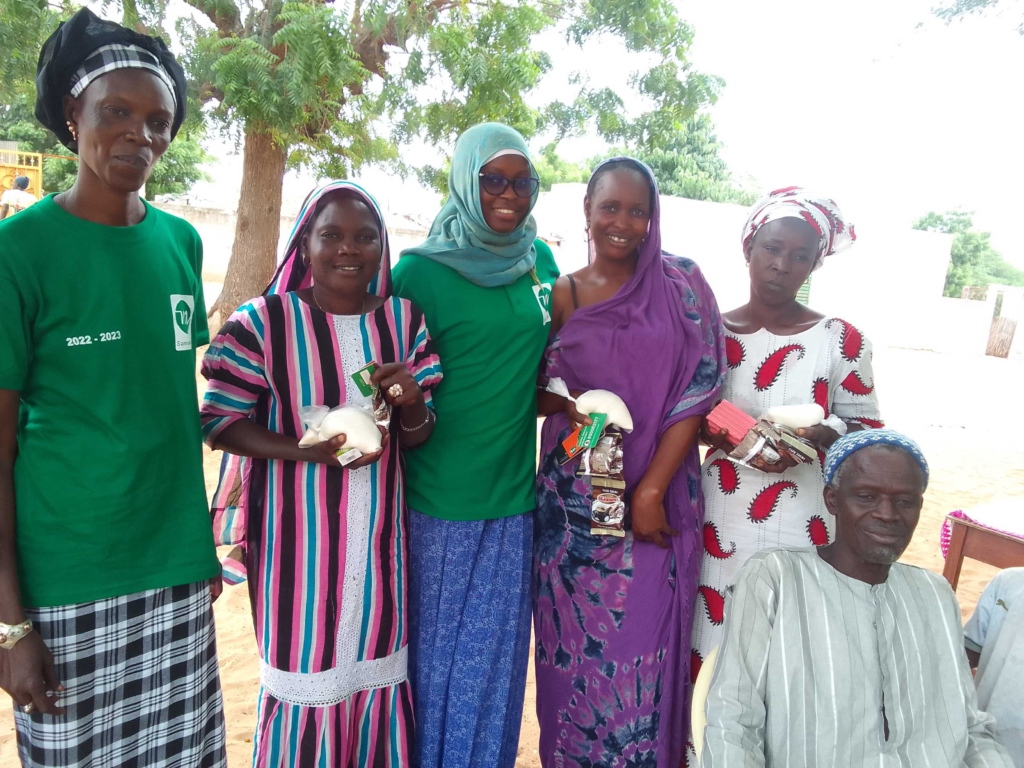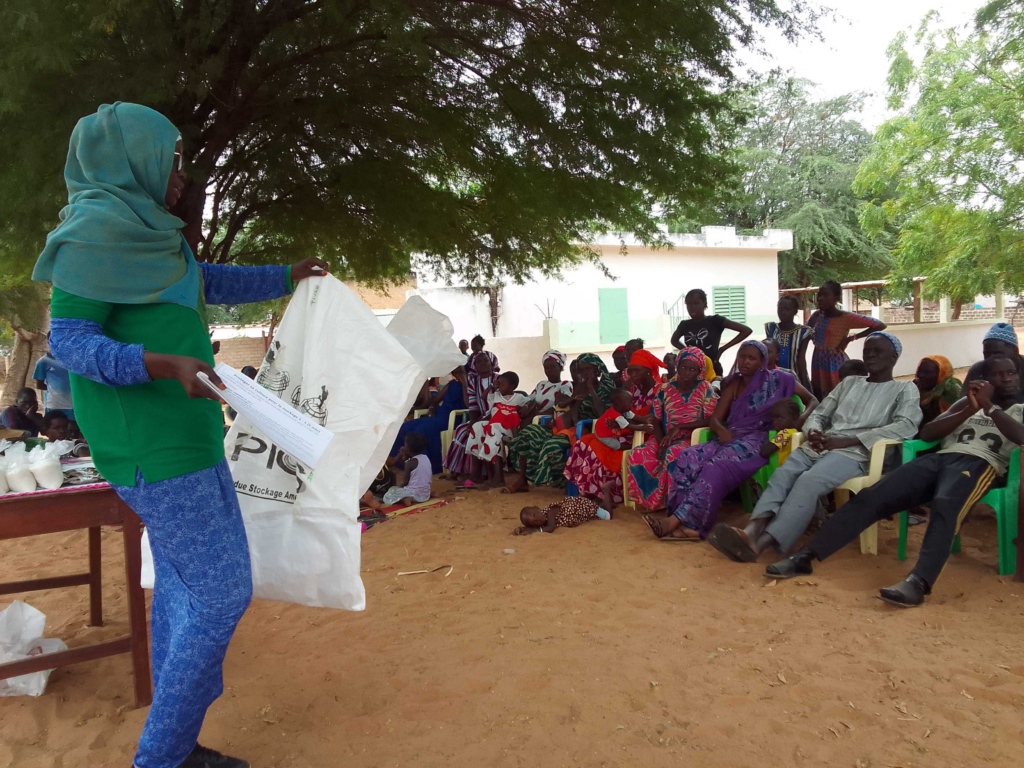
At myAgro, farmers are our long-term partners who can help increase food security in West Africa. To help farmers learn best practices that will optimize their harvests and boost their income, myAgro holds frequent Agriculture trainings for farmers in their villages. The trainings are designed according to the season and the farming needs, with a climate-smart approach.
Agricultural trainings are also an important point of contact between myAgro and farmers, which builds trust because farmers see that myAgro is committed to helping them grow more food. Village Entrepreneurs (VE)—who work closely with farmers to enroll them in myAgro and support them as they pay for seeds and fertilizer little by little—let farmers know about the agriculture trainings and encourage them to attend. The trainings are interactive and dynamic, using group games, metaphors, and visualizations to communicate information. myAgro trains Agriculture Agents (Ag Agent) and equips them to deliver training to farmers.
One reason agricultural training is important is due to its impact. Farmers see that those who attend training have a better yield than those who do not.
“myAgro’s trainings put the farmer at the center, focusing on their challenges and priorities to create the training materials,” says Marème Soda Ndiaye, Ag Agent for the Kébémer and Ngaye area. She adds, “I started working with myAgro in March 2022. I can say that the impact is very strong. There are some farmers who enroll in myAgro but their yield is still lower than those who attend the training. By attending, they were able to learn the techniques using the latest practices and increase their yields. At training time, they leave all their activities to attend to benefit like others.”

For this current season, myAgro carried out 1,297 training sessions in three countries, training 54,654 farmers, 51.6% of whom are women.
During Marème Soda’s training in Gal Beut on harvest storage and handling techniques, farmers pointed out that these trainings are an important event for them. ”Enrolling and having the myAgro card is as easy as doing business at the market,” says Baye Talla, the first farmer to enroll in myAgro in the village. “myAgro establishes a permanent contact with us via the VEs to guide us on the services, the training, and the steps to follow until the reception of the inputs.”
In line with myAgro’s climate-smart approach, the trainings also include techniques to help farmers understand the effects of climate on their activities and the best techniques to adapt to climate challenges, such as selecting the right land to plant the seeds they purchase and the use of organic material. Farmers are taught micro-dosing techniques to best apply fertilizer, and shown how to plant drought-resistant seeds. They also learn about crop rotation techniques so they have more options for planting different types of crops on their land.
In addition to learning about planting strategies, farmers learn how to store and conserve their yields. myAgro trains farmers on how to store crops properly so they can get maximum value from their harvests. This includes storing produce at the right temperature, keeping it dry, sorting it properly, and bagging it appropriately before selling it at the market. Farmers also learn about how to store seeds for future planting seasons.
Ag agents also encourage farmers to store their crops in Purdue Improved Crop Storage (PICS) bags for sustainable and secure storage. The PICS bag technology is a cost-effective and secure way to store seeds without using chemicals to control insect pests. Those bags are given to farmers for free during training.
The village chief of Sine Mbarick, Khalifa Ababacar Ndir, told us that he never misses the trainings because of the knowledge he gains.
“Before myAgro, I used to harvest two bags for a one-hectare field. We had no surplus or hay for our cattle. With the seed and microdosing techniques I learned, I have much more yield and income for myself and my family. With the microdosing method, I am also able to save on inputs for the next seasons, and thus maximize yields. These trainings are very useful for us because we learn very efficient and practical farming techniques.”
Farmers who have been trained by myAgro can more easily adapt to difficult climate conditions and produce higher yields, which results in more food security for their families and communities.